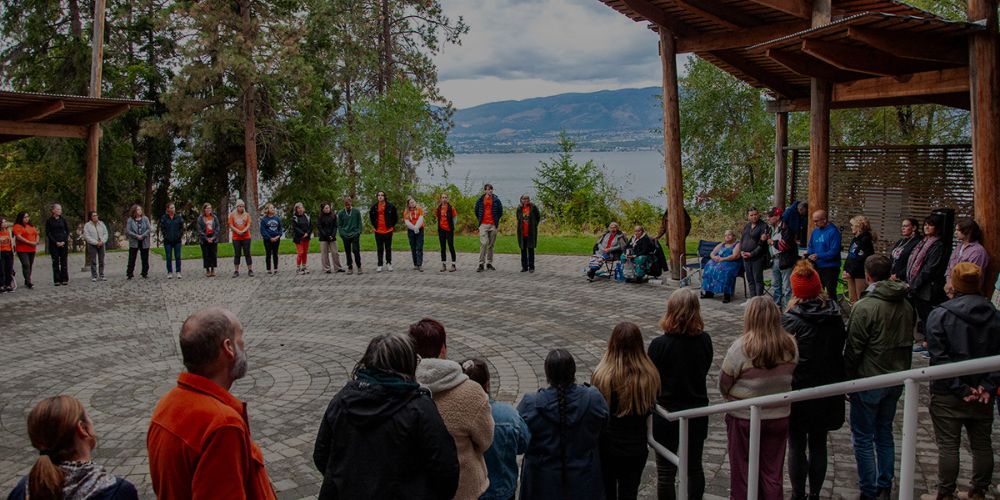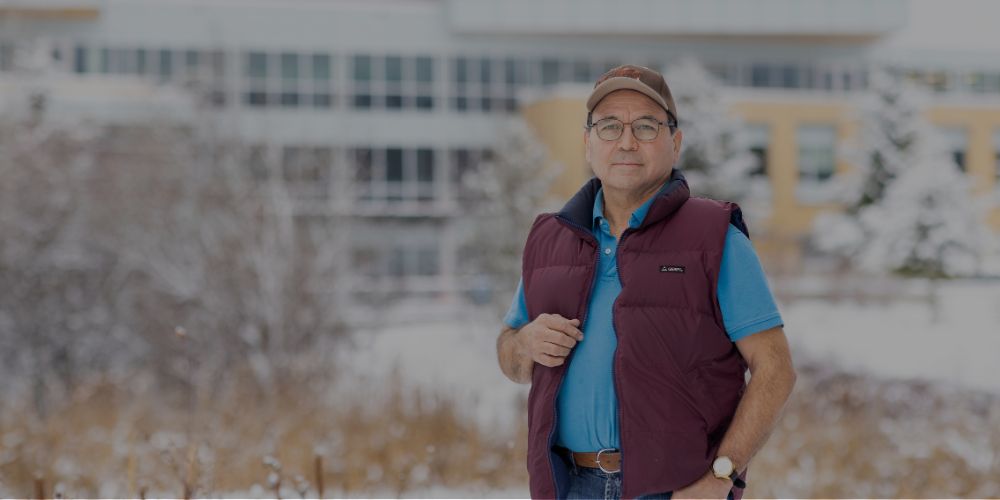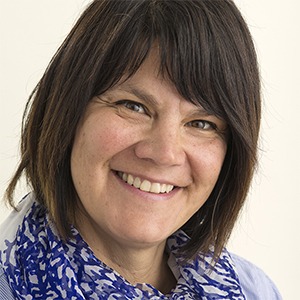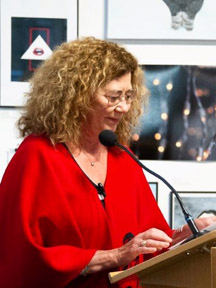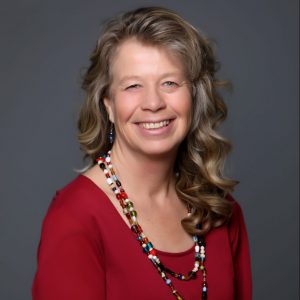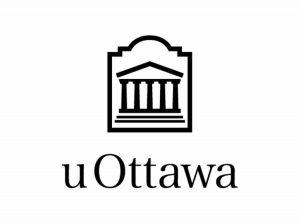Co-Curricular-Making— Honouring Indigenous Connections to Land, Culture, and the Relational Self
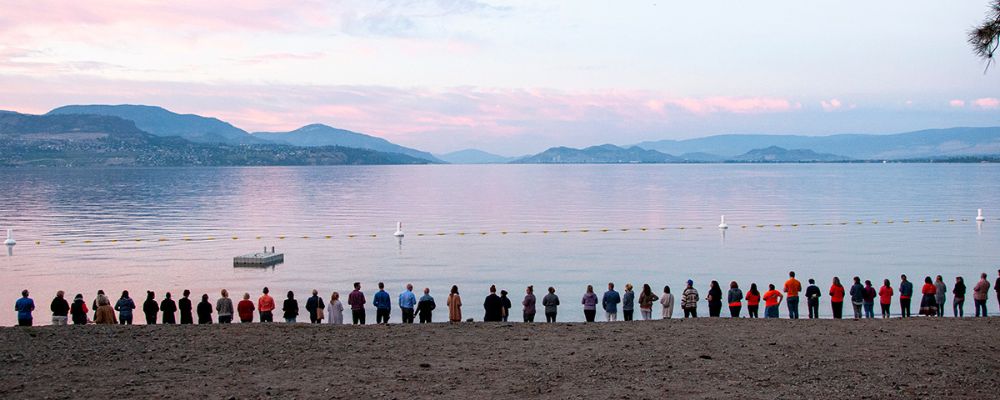
As Canada seeks responses to the Truth and Reconciliation Commission (TRC) Calls to Action, university researchers and local partners have come together to seek respectful ways for educators to align their teaching practices toward reconciliation.
The TRC’s calls to action have formalized Canadian educators’ moral and ethical responsibilities to advance reconciliation. Educators across the country are taking up the challenge of decolonizing their curriculum and teaching; but many are confronted by a lack of Indigenous content knowledge, alongside a lack of practice in negotiating the complexities of holding reconciling conversations with their students, colleagues, and extended communities. Educators’ knowledge of local Indigenous histories, cultures, and places must be strengthened.
To respond adequately, educators and their students must participate in co-curricular-making: that is, navigating curricula not as a predetermined guide to follow, but rather as meaning-making learning/unlearning paths that ask educators and their students to adapt, change, and build understandings.
As allies in teacher education, the team behind this project seeks to identify respectful ways for educators to decolonize their teaching. Our community and university partners will each commit their own education-oriented resources and expertise.
University and community partners will design and deliver learning opportunities that will help teachers in confronting and challenging the colonizing practices that have influenced education. In addition, the partnership will bring Elders and Knowledge Keepers together with participating educators and the extended community. These experiences will study the education conditions that challenge participation in reconciling conversations, grapple with personal narratives, and grow understandings of the histories of colonized and colonizers.
By the end of the five-year project, teachers and their students will have gained deeper understandings of Syilx culture with teachings that connect land, culture and understandings of self in the world. This project will further curricular pathways in kindergarten to grade 12 education, productively contributing towards reconciliation across Canada.
Goals
To articulate reciprocal curricular pathways for educators and their students to respectfully respond, embodying TRC Calls to Action
To enhance understandings of Indigenous cultures, histories and perspectives
To mobilize local, place-based, land-based Indigenous ways of knowing and being
Resources
The purpose of these curricular resources is to enhance educators’ professional knowledge and capacities toward curricular Indigenization.
All materials and resources included on this site are publicly available.
Newsletter
This newsletter provides an opportunity to connect, share upcoming opportunities with community partners, explore some of the team’s learnings and unlearnings and introduce you to the project’s research assistants.
Latest Newsletters
PARTNERS
Globally, classrooms are recognized as sites to address civil, racial, ecological, and social tensions and inspire reconciliation. But, a key understanding within the field of Indigenous Studies is that teaching and learning must reflect local traditions, perspectives, histories, and concerns. This partnership project will reveal reconciliation tied to particular relationships in particular places and concomitantly reveal reconciliation in action nationally. All partners contributing their expertise and resources to the creation of these conversations will strengthen and optimize mobilization efforts in classrooms across the Okanagan. Rather than acting separately, the partnership enters into shared knowledge-building conversations, gaining momentum as all partners contribute and refine ideas and directions in relation to context again and again. We collectively understand this to be the task of reconciliation—to work alongside each other.
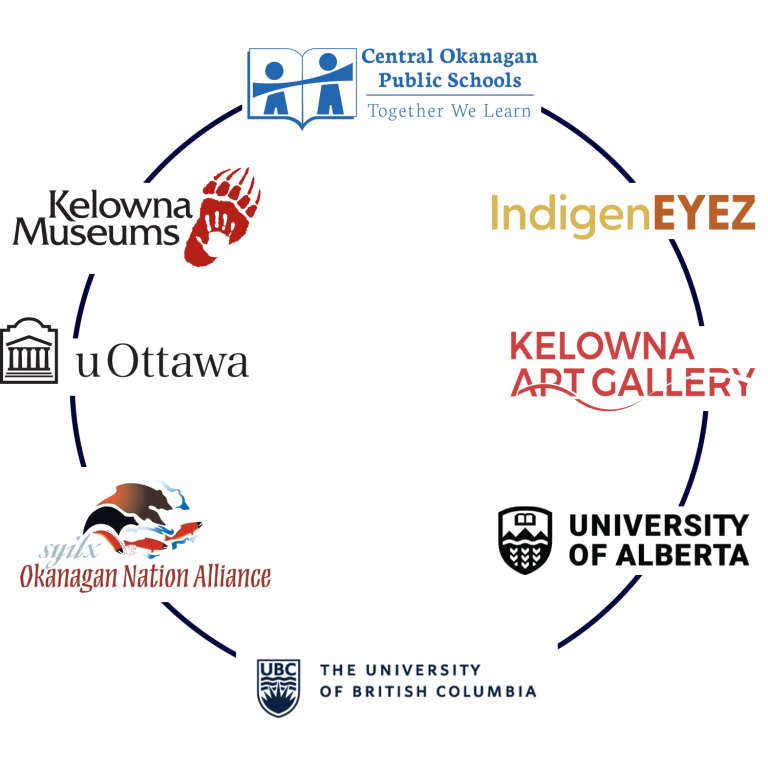
Partner List
Pauline Terbasket, Executive Director
Project Facilitation Team
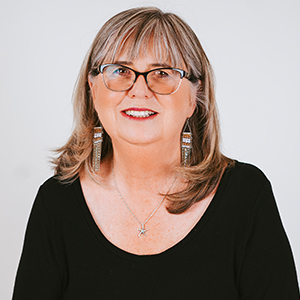 MARGARET MACINTYRE LATTA
MARGARET MACINTYRE LATTA
Principal Investigator
Professor and Director, Okanagan School of Education
margaret.macintryelatta@ubc.ca
Dr. Margaret Macintyre Latta brings mixed European ancestry to the team. She is Professor and Director of the Okanagan School of Education, Faculty of Education, UBC. And, the PI for this SSHRC grant. Collectively, project facilitation team members and colleagues live, learn, and work on Okanagan territory, acknowledging Syilx traditions and customs, and seeking together a new relationship, one based in honour and respect. The team understands the curricular research project, Co-Curricular-Making: Honoring Indigenous Connections to the Land, Culture, and Relational Self, to be one important path for doing so.
DANIELLE LAMB
Project Manager and Research Facilitator
danielle.lamb@ubc.ca
Danielle Lamb (PhD, MEd, BA) is a white settler born and raised in the unceded territory of the Syilx Okanagan Peoples. Danielle is passionate about learning, education, and research. Her dissertation, “A Critical Bond: Cultural Transmission and Nation-Building in Métis and Chicana/o Picture Books” focused on the role of literature as a tool for decolonization, recovery, and assertion. She brings experience in research administration, event management and facilitation to the team.
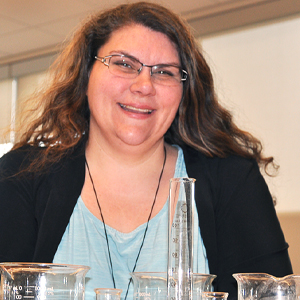 DESIREE MARSHALL-PEER
DESIREE MARSHALL-PEER
Project Manager
Lecturer, Okanagan School of Education
desiree.marshall-peer@ubc.ca
Desiree Marshall-Peer (MC, BSC) is a Cree-Ojibway educator focusing on re-envisioning the British Columbia education system in innovative ways. Desiree has several years’ experience with the BC Ministry of Education renewed curriculum and competencies, with input on graduation transformations, and assessment. She has certification in Design Thinking and Maker philosophy. Desiree is the Project Manager and also currently a lecturer in the UBC-Okanagan School of Education.
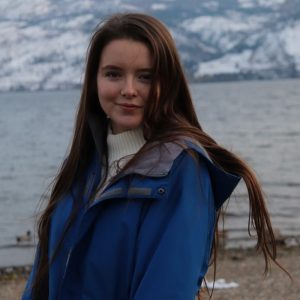 ELIZABETH MACDONALD
ELIZABETH MACDONALD
Student Research Assistant
Elizabeth was born and raised here in the beautiful Okanagan on the unceded and traditional territory of the Syilx Okanagan Peoples. She is in her fourth year of a BA at UBCO where she is majoring in French. She aspires take what she learns within this team into her future classrooms as a French Immersion Elementary teacher. Elizabeth believes that it is important to be the change that you want to see in the world, and aspires to create a classroom environment where everyone feels welcomed and heard. Therefore, she is proud to be a member of this amazing team.
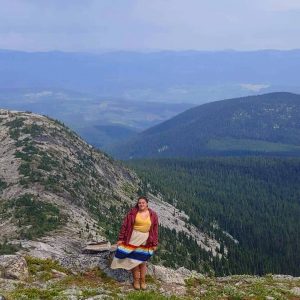
SHEILINA JANE JOHN
Student Research Assistant
“Shekoli, my name is Sheilina Jane John and I’m from the Oneida nation of the Thames located in the great lakes region”
Sheilina Jane John is named into the bear clan as Yakoliwi yo and raised traditionally Longhouse. Three years ago she moved to the beautiful Syilx territory to attend UBCO, majoring in Indigenous studies, minoring in fine arts, on track for her bachelor of Education. She hopes to create a healthier and decolonial education experience for Indigenous youth. She wants it to support their needs and reflect their culture, language and connection to the land.
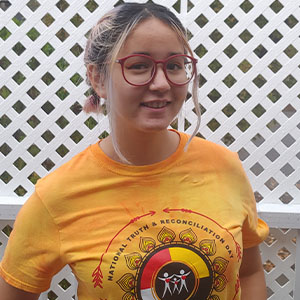 ALANA FIREDANCER
ALANA FIREDANCER
Alumni Research Assistant
Alana is a recent Indigenous graduate from UBCO with Cree and Métis ancestry. She holds a BA in English with a Psychology minor. Currently, she is working with the Kelowna Museums as an Indigenous Programming Assistant. She is involved in developing and teaching educational museum programs with local syilx perspectives incorporated into them. Additionally, Alana engages in on-going research on how to ethically represent syilx culture in an institution that has historical colonial ties. She is also working on projects that focus on decolonizing/Indigenizing current elements of some exhibits within the Kelowna Museums. She was overjoyed to be offered the RA position with the research project “Co-Curricular Making: Honoring Indigenous Connections to Land, Culture, and the Relational Self” as she is personally and academically passionate about increasing Indigenous representation within institutions. Her goals for this project include developing a pedagogy of Indigenous representation that benefits Indigenous people rather than harms them. A pedagogy that is able to acknowledge the colonial and historic treatment of Indigenous people within Canada but is also focused on shifting into a more hopeful future where Indigenous ways of knowing, and by extension Indigenous people, are respected, appreciated, and understood.
 MADELAINE MCCRACKEN
MADELAINE MCCRACKEN
Student Research Assistant
Madelaine McCracken (She/Her/Elle) is Red River Métis with her families being Chartrand and Bruce from St. Laurent and Winnipeg, Manitoba (Treaty 1 territory). Madelaine is a first-year PhD Graduate Student and Curriculum Scholar within the Faculty of Education at the University of Ottawa. She is also the Education and Public Engagement Coordinator at the First Nations Child and Family Caring Society.
Madelaine’s research aims to address how First Nations, Métis, and Inuit rights, perspectives, and values can be appropriately and respectfully represented in schools, classrooms, curriculum development and its expectations across Canada. These notions ought to be shared in ethically relational and accessible ways, primarily being through conversations and building relationships with educators and learning community members. Madelaine is passionate about supporting community in many ways, all to respectfully acknowledge Métis, First Nations, and Inuit, and make educational differences to enact equitable change.
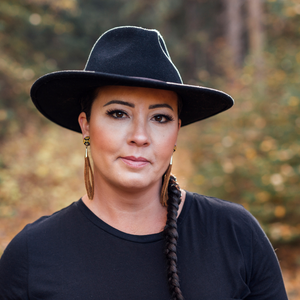
ETIENNA MOOSTOOS-LAFFERTY
Student Research Assistant
Etienna Moostoos-Lafferty was born and raised in Grande Prairie Alberta. Her family is from the Sturgeon Lake Cree Nation in Treaty 8 territory. Etienna has teaching experience in First Nation community schools and in provincial schools, also in public and Catholic school systems.
Etienna now works provincially as an Indigenous Education consultant, coach, and independent contractor. Etienna has helped to develop and implement workshops aimed at promoting reconciliation through teacher education. Etienna has created resources that help teachers better understand topics such as Residential Schools, Metis Settlements, Inuit history, Myths and Stereotypes of Indigenous people, progression of the TRC, and Indigenous Knowledge and Pedagogy, and Treaty Relationships.
Etienna is a certified teacher and completed her Masters in Secondary Education at the University of Alberta. Her thesis was titled Pihtikwe: Exploring Withness in Teacher Preparedness and Professional Development. She is now a doctoral student at the University of Alberta.
Catalina Munoz Vargas was born in Bogota, Colombia but grew up in Edmonton, Alberta. Five years ago, she moved to the Syilx territory to attend the University of British Columbia, deciding to double major in Indigenous Studies and Political Science. As an Indigenous Studies teacher assistant she demonstrates the importance of gaining Indigenous history and knowledge through post-secondary education. As a settler on Indigenous land, Catalina believes that it is crucial to understand the policies that impact settlers and Indigenous peoples.
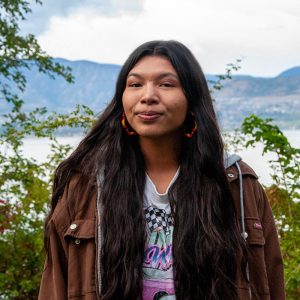 Moonlite Supernault is a member of the Westbank First Nations community in the Okanagan/ syilx territory. She is currently attending her third year of the Bachelor of Arts Program majoring in Indigenous studies. While Supernault aims for an education degree, she works with her band at the Westbank First Nations Youth Center teaching traditional games, song and dance to children ages 5-11.
Moonlite Supernault is a member of the Westbank First Nations community in the Okanagan/ syilx territory. She is currently attending her third year of the Bachelor of Arts Program majoring in Indigenous studies. While Supernault aims for an education degree, she works with her band at the Westbank First Nations Youth Center teaching traditional games, song and dance to children ages 5-11.
Nicole Jules, Student Research Assistant
Dale Saddleback, Student Research Assistant
Morgan Rashke, Student Research Assistant
Sofia Terbasket-Funmaker, Student Research Assistant
Ty Baskin, Student Research Assistant
Jody Dlouhy-Nelson, Research Assistant
Brianna Chernenkoff, Student Research Assistant
Joanne De Guevara, Central Okanagan Public Schools
Rhonda Ovelson, Central Okanagan Public Schools
Linda Digby, Kelowna Museums Society
Research team: Co-Investigators, Collaborators
 MARGARET MACINTYRE LATTA
MARGARET MACINTYRE LATTA
Principal Investigator
Professor and Director, Okanagan School of Education
Dr. Macintyre Latta is a former classroom teacher at the elementary, junior high, and high school levels, who returned to graduate studies compelled by John Dewey’s (1938) assertion that within aesthetic experience is a learning approach and direction. She is committed to the primacy of teachers in the lives of their students and the long-term impact on the future, contributing to the scholarship regarding school curriculum, teacher education, and professional development reform initiatives.
 TERRY BEAUDRY
TERRY BEAUDRY
Deputy Superintendent,
Central Okanagan Public Schools
Terry Beaudry has a long and impressive record of implementing district, provincial, and community initiatives. She is well-known for her exceptional work with First Nations bands, teachers and students. Her passions include early learning, Indigenous education, parents as partners, youth at risk, teenage mothers, community partnerships, curriculum development, collaborative learning teams, Education law, and leadership development. Terry-Lee is committed to just, inclusive and equitable practices for all students. She possesses excellent skills, a rich depth of experience, and exemplary personal characteristics, all of which contribute to her successful district leadership and to her strong ties with the UBC Okanagan campus.
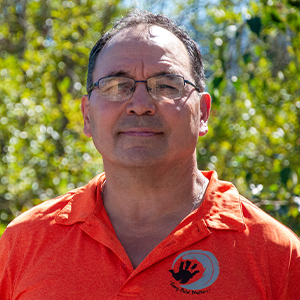 BILL COHEN
BILL COHEN
Associate Professor, Okanagan School of Education
Dr. Cohen is from the Okanagan Nation with extensive kinship ties throughout BC and Washington. He specializes in the areas of Indigenous knowledge, research, education, and transforming pedagogy. For over twenty-five years, he has engaged in community-driven, transforming projects, as parent, volunteer, advisor, facilitator, and director. He is an educator, artist, story-teller and author. The focus of Dr. Cohen’s continuing research is to identify, understand and theorize the transforming potential of Indigenous and Okanagan knowledge and pedagogy through organic language and cultural knowledge revitalization. As an educator, he has organized numerous community, school, arts, language, literacy and numeracy projects involving elders, fluent speakers, parents and children.
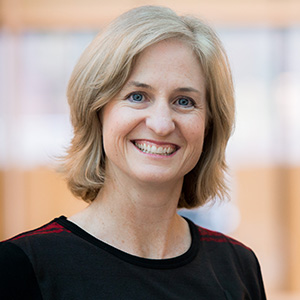 SABRE CHERKOWSKI
SABRE CHERKOWSKI
Director of Graduate Programs, Okanagan School of Education
Dr. Sabre Cherkowski has been researching what it means for educators to grow their professional and personal potential toward flourishing at work. She has examined how teacher wellbeing contributes to building positive school experiences and the role of leadership for cultivating positive workspaces. In recognition of her innovative research, Cherkowski received UBC Okanagan’s 2020 Researcher of the Year award for Social Sciences and Humanities in 2020.
 DWAYNE DONALD
DWAYNE DONALD
Associate Professor, Faculty of Education
University of Alberta
Dr. Donald is Papaschase Cree and Professor of Curriculum Studies and Indigenous Philosophies at the University of Alberta. He is Vice President (English) of the Canadian Society for the Study of Education. His research commitments are guided by Plains Cree and Blackfoot wisdom insights and the ways in which those can meaningfully influence understandings of teaching and learning today. Dr. Donald is particularly interested in representations of Canadian national narratives and citizenship that typically inform curriculum documents and perpetuate the general misrecognition and incomprehensibility of Indigenous experience and memory
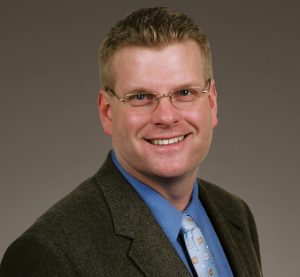
KEVIN KAARDAL
Superintendent of Schools, Central Okanagan Public Schools
Kaardal is the Superintendent of Schools/CEO of the Central Okanagan Public Schools. Kaardal is an award-winning educator, recognized nationally for excellence in educational practice. He is an author and innovator who has presented on educational and administrative topics at provincial, national and international conferences. He is currently President for the BC School Superintendent’s Association, President-Elect for the Canadian Association of School System Administrators and a Director for Basketball BC. He has served on the Dean of Education’s Advisory
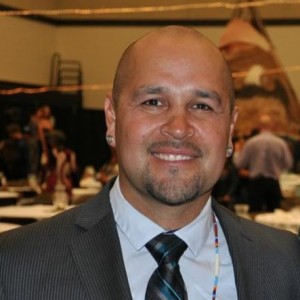 KEVIN KAISER
KEVIN KAISER
Resource Teacher/Consultant
Central Okanagan Public Schools
Kaiser graduated from the University of British Columbia with a Bachelor of Education in 2002 and Masters of Educational Technology in 2009. He taught in Ontario briefly, then moved back to BC and began teaching in the Central Okanagan School District. He earned the Premier’s Award for Teaching Excellence for developing First Nations English 9.
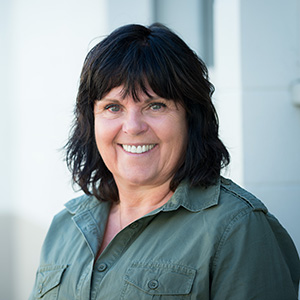
WENDY KLASSEN
Director of Undergraduate Programs, Okanagan School of Education
Dr. Klassen obtained both her Bachelor of Education and Master of Arts degrees in Mathematics Education from the University of British Columbia. Wendy completed her PhD in curriculum at the University of Toronto.
Dr. Klassen has teaching experience in the K-12 school system, colleges, and universities in British Columbia, Saskatchewan, Ontario and Nunavut. Wendy was nominated for an award of excellence in teaching.
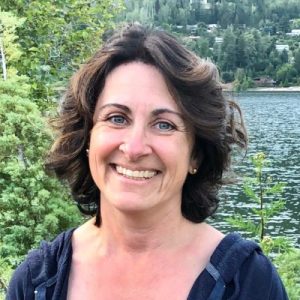 CORINNE JACKSON
CORINNE JACKSON
Communications Director,
Okanagan Basin Water Board (OBWB)
Corinne is uniquely suited to her role at the OBWB with a degree in Political Science from UBC Vancouver, and experience as an award-winning journalist, specializing in social justice issues. Corinne joined the OBWB in 2009 and, as part of her role, manages its public outreach and education program “Okanagan WaterWise,” raising awareness for valley water issues. She is also project manager for the recently-released Our Relationship with Water in the Okanagan – Explorations in Outdoor Education to Support the B.C. Curriculum. The education guide was created in response to requests from Okanagan teachers for locally relevant resources and developed in collaboration with Syilx Knowledge Keepers and several partners including staff at School District 22, 23, and UBC Okanagan School of Education. A “Syilx Knowledge and Perspectives module” is currently in development.
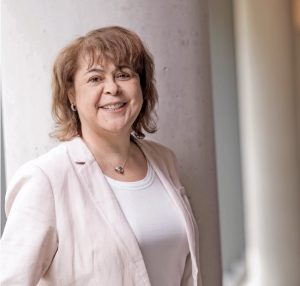 JAN HARE
JAN HARE
Associate Dean for Indigenous Education, Faculty of Education, UBC
Director, NITEP (Indigenous Teacher Education Program)
Professor, Language and Literacy Education
Canada Research Chair in Indigenous Pedagogy
Dr. Hare is a Professor and Associate Dean for Indigenous Education and Director, NITEP, UBC (Indigenous Teacher Education Program) and serves as a member of the UBC Okanagan School of Education Indigenous Education Council. As an Anishinaabe scholar and educator from the M’Chigeeng First Nation, her research is concerned with improving educational outcomes for Indigenous learners by centering Indigenous knowledge systems within educational reform from early childhood education to post-secondary.
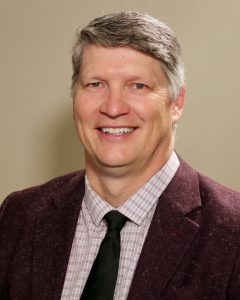 AL LALONDE
AL LALONDE
Assistant Superintendent of Central Family of Schools
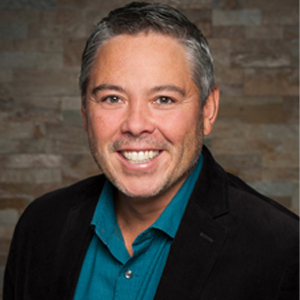 NICHOLAS NG-A-FOOK
NICHOLAS NG-A-FOOK
Professor and Vice-Dean of Graduate Studies, Faculty of Education
University of Ottawa
Dr. Ng-A-Fook is a Professor and Director of the Teacher Education Program at the U of Ottawa. He is the President of the Canadian Society for the Study of Education, the largest professional educational research association in Canada. In these administrative, educational, and research capacities, he is committed toward addressing the 94 Calls to Action put forth by the Truth and Reconciliation Commission in partnership with the local Indigenous and school board communities. His research specializes in curriculum studies, and he draws on life writing research to develop culturally responsive and relational curriculum with Indigenous and first-generation immigrant communities.
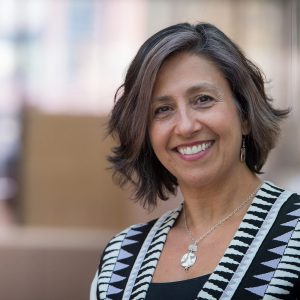
KAREN RAGOONADEN
Associate Dean, Teacher Education, Faculty of Education & Professor of Teaching, Okanagan School of Education
Dr. Karen Ragoonaden teaches and researches in the Faculty of Education of the University of British Columbia’s Okanagan Campus. She has lived, studied and worked in North America, Europe and Africa. Her publications and research interests lie in the area of mindfulness and well-being, culturally responsive pedagogy and conceptions of teaching and learning. As a qualified Yoga instructor, the concept of Mindful Educational Practices is an integral component of her research and her practice. As a university teacher and researcher, her focus and commitment to educational leadership and curricular innovation have been recognized by virtue of her on campus, professional and community work relating to equity, diversity and inclusion. In 2020, in recognition of her dedication to making a significant impact on the culture of teaching and learning, she received the Provost Office’s Teaching Excellence and Innovation Award.
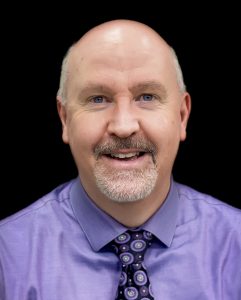 JONATHAN REVER
JONATHAN REVER
Assistant Superintendent
Central Okanagan Public Schools
Over the past 29 years, Rever has gained valuable experience and working knowledge at all levels of B.C’s school system, as a teacher, school administrator, Director of Instruction and Assistant Superintendent. During the past 15 years, while working at a district level, he has been engaged in driving system change. This has been done by developing and leading teams of educators and district staff members focused on providing powerful teaching and learning environments for each student K – 12. During this time, he has also gained considerable provincial, national and
international experience because of his interest in and passion for ‘improving student learning and well-being’.
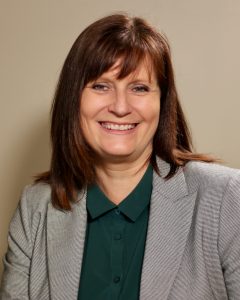 RAQUEL STEEN
RAQUEL STEEN
Assistant Superintendent of Westside Family of Schools
Steen has been involved in education for 31 years and is presently serving in a leadership role as Assistant Superintendent in Central Okanagan Public Schools. In her educational journey over the past three decades, Steen has worked in rural and urban schools in Canada, Japan and South Korea as well as served as an educational coach in the United States and as the District Principal of International Education for the Central Okanagan. Steen continues to be an active advocate for building inclusive school cultures and communities of learning and has an unwavering passion for engaging in Truth and Reconciliation through decolonizing teaching and learning in public schools. Steen feels privileged to continue to support teacher education programs through a lens of human rights and an appreciation of diversity.
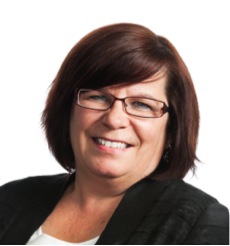 SANDRA STYRES
SANDRA STYRES
Associate Professor, Ontario Institute for Studies in Education
University of Toronto
Dr. Styres is a Tier II Canada Research Chair in Iethi’nihsténha Ohwentsia’kékha (Land), Resurgence, Reconciliation and the Politics of Education, and Assistant Professor with the Department of Curriculum, Teaching and Learning at OISE. Dr. Styres’ research interests include, but are not limited to, the politics of decolonizing reconciliation in education, the integration of Indigenous perspectives into teacher education programming, Indigenous philosophies and knowledges, culturally aligned methodologies and theoretical approaches to Indigenous research, ethics and protocols that guide the work in Indigenous and non-Indigenous research collaborations, and community engagement.
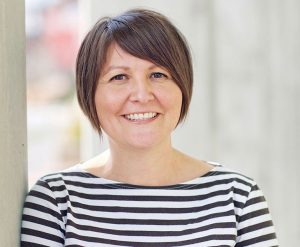 ADRIENNE VEDAN
ADRIENNE VEDAN
Director, Aboriginal Programs and Services
UBC Okanagan
Vedan is a respected leader currently serving as Director of Aboriginal Programs and Services, has been appointed as Senior Advisor to the Deputy Vice-Chancellor on Indigenous Affairs.
SUPPORTED BY
This research is supported by a Social Sciences Humanities Research Council Partnership Grant. The project received $1,076,813.

